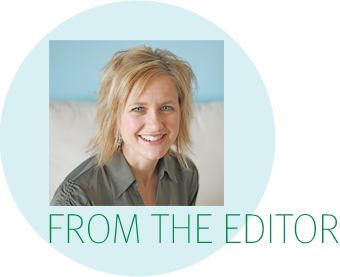PEN eNews 2(3) October 2012
PEN
® eNews is a monthly e-newsletter shared with the global PEN Community and created to help dietitians position themselves as leaders in evidence-based nutrition practice. In addition, users of the PEN System will find articles on the new evidence, resources and features available and how to maximize one's use of PEN.

using PEN's evidence-analysis approach
Every day, nutrition is in the news, touting the miraculous nature of a food, blaming a food or food group for all that ails us, or espousing a diet that promises to cure all our woes. PEN, as part of its media and journal monitoring, has noted examples of where article headlines may be sensationalized and does not always reflect the study in question and what was actually published in the article. We are not the only ones who have noticed this issue. A recent article by Yavchitz and colleagues found that 40% of RCTs are reported in a way that emphasizes the beneficial effect of the experimental treatment, thereby distorting the actual results.
PEN has published our comments and evidence analyses on
PEN’s News-Making Evidence, as a
PEN Facebook note and in previous PEN eNews articles. We have published on topics such as egg yolks and cardiovascular disease risk,
pass the salt or pass on the salt,
Do Cancers Crave Carbs, red meat consumption and mortality, and infant antibiotics use and subsequent development of obesity. Through our social media monitoring, we have also noted examples of dietitians publishing their own critical thoughts on trending nutrition topics, including the questionable benefits of going gluten-free for weight loss, arsenic and rice, and an analysis of the popular book Wheat Belly, to name only a few.
Dietitians are evidence-based health professionals and can help cut through the nutrition clutter, helping to separate fact from fiction. Through our foundational knowledge and on-going consumption of newly published literature, dietitians help to shed light on perspectives that may have been missed and help to contextualize the findings to the bigger picture. If you have a critical appraisal on a nutrition-related topic that is making news that you want to share, please email us at
eNews@pennutrition.com.
This edition of PEN eNews 2(3) has many resources to help you create evidence-analyses. What’s the Buzz About Open Access explores the benefits and downfalls of open access journals. We highlight the issues around publication bias, an important perspective to consider during critical appraisal. We have several articles describing how dietitians are using PEN, including PEN in Action: Using PEN to Update Consumer Resources. As part of our six-part series to help you foray into social media with confidence, we share Social Media Tip #3. We highlight a guide that describes how PEN can be used for nutrition student assignments. As a preview to eNews 2(4), PEN at Work describes the reaction to PEN at the recent International Congress of Dietetics.
This and more in eNews 2(3).
Kristyn Hall MSc, RD
Editor, PEN eNews
PEN eNews may contain links to other external websites. Pennutrition.com is not responsible for the privacy practices or the content of such external websites. Dietitians of Canada does not endorse the content, products or services on other websites.
What's New in PEN
Evidence Clips! Evidence Clips are new, short 'clips' that will present the evidence, or lack of evidence on the latest nutrition issue that consumers are interested in and may approach dietitians for information. These clips will eventually replace Current Issues: The Inside Story, a quarterly topic overview publication. Evidence Clips will be available in PEN attached to their most relevant Knowledge Pathway topic and on the PEN home page under 'News-Making Evidence'.
Most recent Clip:
Raspberry Ketones and Weight Loss. This features a succinct PEN review on the research currently available on the use of raspberry ketones for weight loss.
Wondering what else is new in PEN? Below is a quick glance at some of the new and updated content in PEN. Look for the new and updated symbols in PEN to see more new and enhanced content!
Updated Knowledge Pathways 
New Practice Questions 
Updated Practice Questions 
Professional Tools
Client Tools
Submitted by
Jane Bellman RD, MEd, Kerri Staden RD, BSc and Beth Armour PDt, MEd
PEN Assignments for Students
Students have been widely involved with PEN since it was launched in 2005. They have:
- contributed to PEN through review and/or creation of content and client handouts;
- gained an understanding of systematic literature searches and critical appraisal of research and the synthesis of evidence into practice;
- used PEN to gain new knowledge in dietetic practice areas.
Based on these student experiences, the
PEN Student Assignment Guide was created. It is available as a link under Key / Useful / Quick Links on the PEN home page and contains details on:
- the evidence–based approach;
- variety of assignment guidelines resulting in development of various PEN knowledge objects;
- the potential Integrated Competencies for Dietetic Practice (ICDEP) to be achieved in the assignments; and
- PEN tools and resources students can use in developing various PEN knowledge objects.
- Assignment A - Evaluating tools and resources from sources external to PEN (third party) for addition to Knowledge Pathways
- Assignment B - Developing or updating PEN Client Handouts using the evidence in PEN
- Assignment C - Writing a “News-making Evidence” piece (Evidence Clip) for the PEN Home Page and the DC members website
- Assignment D - Answering new individual questions or updating existing questions for a Knowledge Pathway
- Assignment E - Creating a new knowledge pathway, adding a significant amount of new information to an existing knowledge pathway or completing a special project related to the PEN Service. These are usually completed as the requirements for an applied Master’s project
- Assignment F – Similar to Assignment E but meets the requirements for a self-directed university course
PEN's goal is to partner with educators and students to provide meaningful learning experiences that build critical skills that the student will use in their professional career. Depending on the quality of the completed assignments, the content or resource developed will either be added to the PEN database or be used as a base for further development of PEN content or resources. An additional bonus is the potential for students to have their work reviewed by international experts from PEN's partner countries: Australia, New Zealand, Canada and the United Kingdom.
Have a project in mind? The PEN team would like to hear from you to discuss projects of mutual interest that we might work on together.
- British Universities can contact Sue Kellie Head of Education and Professional Development at the British Dietetic Association if they are keen to get involved.
- Australian Universities can contact Bree Murray, Professional Services Dietitian at the Dietitians Association of Australia.
- Canadian Universities can contact Jane Bellman or Kerri Staden, PEN Resource Managers, for Assignments A & B; and Beth Armour, PEN Content Manager, for Assignment C to F.
PeN AT WORK
PEN went to a land down under, ICD attendees began to ponder, Is PEN, is PEN a global wonder? We’re gonna grow, gonna expand globally!

Well maybe this is stretching, a little, the reaction to PEN at the recent International Congress of Dietetics (ICD) in Sydney Australia from September 5-8, 2012. The truth is, we did get lots of positive feedback from international attendees at congress presentations by Jayne Thirsk (PEN Director) and at the Dietitians of Canada booth where we demonstrated PEN, and other resources, including online courses and the Canadian Foundation for Dietetic Research’s new Research Room (see
Knowledge Transfer section of this newsletter).
There were almost 2,200 attendees from 60 countries and many of them stopped by the DC booth in the three days it was open. Amongst those stopping by were:
- PEN users who loved it;
- PEN want-to-be users who shyly confessed they had signed up, hadn’t used PEN yet but promised to give it a try after seeing a demo;
- several dietetic associations wanting to explore getting member access to PEN and
- we even had a kangaroo wanting to know what this wave of interest in “PEN” was all about. [See picture of PEN's Director, Jayne Thirsk, left of the kangaroo, and PEN's Content Manager, Beth Armour, right.]
Congratulations to Dietitians Association of Australia (DAA) who did a superb job at hosting this year’s international congress. The theme of the congress was LEAP: Leadership, Evidence & Advancing Practice and there was no lack of choice of educational sessions with 13 symposia each morning, 13 concurrent sessions twice a day with 9-10 oral presenters in each session and 14 workshops each afternoon. Choosing what to attend was not an easy task. To add to the challenge there were 300 poster sessions over two days!
In the next issue of PEN eNews we will provide highlights of a few of these sessions. Stay tuned!
Have a favourite PEN eNews article, but cannot remember which one of our nine issues it was from? PEN eNews is now searchable! On the upper right-hand side of the www.pennutrition.com/eNews page, you will see a “Search PEN eNews…” search box. Enter in your search term and our search engine will locate the related articles.
PEN in Action: Using PEN to update Consumer Resources
I work in a busy role as Project Officer Dietitian at the Dietitians Association of Australia (DAA). I have found PEN to be a useful tool that I regularly use to ensure my work is based on the latest evidence.

As part of my role I am responsible for updating and maintaining ‘
Smart Eating For You’ (SEFY) - the consumer section of the DAA website. SEFY features an array of nutrition related resources, for example:
- Nutrition Information A-Z (fact sheets on nutrition topics)
- Healthy eating tips and recipes
- Answers to frequently asked questions
- Interactive quiz and supermarket tour
I use PEN to help write and review the content for all of these resources!
Recently I have started to review the ‘
Nutrition Information A-Z’. With almost 130 different topics to review, access to PEN has been a real time saver! Using the Knowledge Pathways within PEN, I can quickly research the current evidence for each topic and be certain that the information I provide consumers is reliable and up-to-date. Without access to PEN, I would need to conduct literature searches on each of the 130 topics. This would be an arduous task particularly when reviewing content is not my only job!
In addition to SEFY, PEN has also been useful in helping me to answer nutrition questions from the general public. Often these can be abstract questions, for example, ‘Do alkaline foods prevent cancer?’, which need to be answered cautiously. When I am unsure of the topic or practice area I will check what PEN has to say. This way I can answer with confidence knowing that I have accessed the latest evidence base. I have found this to be important when answering questions about the latest fad diet or diet myth. It is essential for me to provide consistent and accurate messages to help avoid confusion and set the record straight.
For me, PEN has certainly made my job easier! It is a user-friendly tool which can be used in any practice setting. If you haven’t already, I encourage you to log on to PEN to see how it can help you!
Written by Megan Tennant, BND, APD, AN - Project Officer Dietitian
Did you know that when the Dietitians Association of Australia, Dietitians New Zealand, the British Dietetic Association and Dietitians of Canada develop and review public nutrition information, PEN is consulted as part of this process, ensuring that the nutrition information is consistent with PEN? PEN finds and evaluates the evidence. This evidence is then translated into information for consumers.
student corner
In the eyes of a nutrition student using PEN
by Leah Cain BScHnu, RD

Leah Cain BScHnu, RD
I consult PEN first if I require any resources, patient handouts, explanations or information when planning my nutrition care plans. PEN offers nutrition and dietetic students a centralized location to obtain evidence-based material for their own personal use and when offering education to clients. The knowledge pathways allow for nutrition and dietetic students and registered dietitians to enhance their knowledge and better transfer knowledge into practice. Being a dietetic intern at The Moncton Hospital, I use PEN in preparation for clinical rotations and utilize the knowledge pathways to become familiar with relevant nutritional information. The user-friendly question and answer format in the knowledge pathways makes it simple to locate pertinent information. Being a student, I often find the practice guidance summaries helpful - they provide me with concise credible information.
When presented with a client who requires a handout, I first look to PEN because I know it is a trusted and credible resource. PEN provides simplified versions of handouts for client use, which I use often depending on the literacy level of the individual. A great feature is the “note” section on the back of all handouts where I frequently leave contact information and any other specific recommendations or key topics discussed during the nutritional intervention. I also first look to PEN when initiating any type of research for internship, in areas such as: literature reviews, case study investigation and various assignments.
PEN is a trusted resource centre, which students and other registered dietitians can easily access. The universality of PEN around the world offers a specific tool set to the Dietetic profession, and thus enhancing credibility of the profession.
From using PEN I learned the most about the evidence that informs nutritional therapies for various diseases and conditions. All PEN handouts that I have reviewed and used with clients encompassed all aspects of the specific disease, condition or lifestyle that was necessary. Most importantly PEN handouts are designed at an appropriate readability for the general population.
PEN is a time saver! PEN offers centralized access to trusted evidence-based material to be utilized for patient education while in dietitians are in training!
Need a writing opportunity for nutrition students? Want to share an innovative way you use PEN to support student learning? Why not get the student to write it up for PEN eNews! For article guidelines, email us at eNews@pennutrition.com.
Submitted by
Heather Petrie MSc, RD - Evidence Analyst Contractor
Searching for Answers: Combating Publication Bias
Did you know that studies with statistically significant results (usually referred to as positive studies) are more likely to be published (or published sooner) than those that did not find statistically significant differences (negative studies, or studies with null findings)? This is an example of publication bias where there is selective publication of research manuscripts based on factors such as the size, direction and/or statistical significance of results.
Not finding a significant difference between treatment/exposure and control is an important finding; although it can also result simply from poor study design or small sample size. We raised this issue in our recent article series on systematic reviews and are now highlighting publication bias as the first in a series of articles on different types of bias that can afflict research.
 What are the potential consequences of publication bias?
What are the potential consequences of publication bias?The true size of effect (benefit or risk) is not known when publication bias occurs. This negatively impacts practice guidelines, health recommendations, and medical and policy decisions. It is also not fair to the study participants who put themselves at risk and are under the impression that their participation is advancing science.
Reasons publication bias may occur:
- Study investigators may feel that their results are not interesting or likely to be published and so either do not submit, delay their submission, submit to lower impact or non-indexed journals or do not re-submit when rejected.
- Journal editors and peer reviewers may reject or delay manuscript review and publication because of null findings, thinking that it does not contribute to science.
The funding industry may block or delay publication if the results are not what were desired.
Dealing with publication bias…or, better yet, preventing it:
- Systematic review authors may try to locate unpublished data to include in a meta-analysis or generate a funnel plot of included studies to estimate the impact of publication bias on results.
- Mandatory prospective trial registries require that a complete study protocol be registered before study commencement or participant enrollment. The registry can be compared to the published literature. Examples of existing registries include:
It is important to be aware of publication bias, its risk to systematic reviews and health decision-making, and to consider it when critically appraising the literature.
References available upon request.
What area of literature do you think is most vulnerable to the possibility of publication bias? E-mail us at
eNews@pennutrition.com
Shaping Our Future
"My first exposure to PEN was through an independent research project within my nutrition (major) at the University of Alberta, where a classmate and I collaborated on writing a PEN pathway for Collagenous Sprue (CS). I chose this project because I wanted to learn more about this rare enteropathy. At the same time, it was exciting to participate in creating a valued resource for busy practitioners. My PEN experience has broadened my ability to systematically review and grade literature. At the same time, the “behind the scenes” perspective increased my appreciation for the time PEN contributors commit. As an aspiring dietitian, I will certainly use PEN as a resource for developing my knowledge base and keeping up-to-date with the ever-evolving literature. I am proud of our final CS document and hope that our efforts will help dietitians in developing a care plan for CS patients." - by Adrian Rennie, BSc, Nutrition and Food Science, University of Alberta, Integrated Dietetic internship (class of 2013)
How has PEN influenced your nutrition and dietetic training? Contact us at eNews@pennutrition.com
Social Media: Dialling into the Digital Age Part III
Highlights of this article have been drawn from the Dietitians Association of Australia’s, ‘Dialling into the digital age: Guidance on social media for DAA members’ resource (2011). Authored by Emma Stirling, and DAA Reference Group members Catherine Saxelby, Zoe Nicholson, Tara Diversi, Sally Johnston, Lisa Simpson, Maree Garside, and Frances Gilham.
In Part I of this series, we highlighted how social media is not a passing fad, but rather a new way of communicating. We shared tip #1 -
Don’t be antisocial, and provided a number of suggestions of how to be social and successful on social media and tip #2 -
Maintain professional boundaries and privacy. Over the next four issues of PEN eNews Volume 2, we will provide highlights of this resource to help you dial into the digital age with confidence and professional integrity.
Tip #3: Be honest, informed and transparent
It’s important to be honest and open in your use of social media. It should always be easy for people to determine the capacity in which you are using social media and whether you have a vested interest in the content of your material. If you are actively generating content such as blogging, make sure you understand regulations and “unwritten” rules.
Aim to:
- Stick to subject matter that is within your area of expertise or defer to a colleague for advice or comment.
- Be informed, look to the evidence base and make sure you have all the facts before posting or responding.
- Publish accurate information and if you are unsure of the answer to a question, be honest and say so.
- Be careful not to over-simplify your message especially using Twitter where your characters are limited to 140.
- While it may make sense to you, others may take the message more literally or out of context.
- Be the first to respond to your own mistakes. If you make an error, be up-front and correct it quickly.
- Make it clear if you’re generating content as an individual, company or organisation.
- Consider adding your initials at the end of each post to keep it personal, if your organisation has a number of authors for their social media sites.
- Disclose any potential or actual conflicts of interest.
- Be transparent about any financial interests including “freebies”, like product samples, you may have been gifted.
- Include a list of your sponsors, supporters or in the case of consulting work, your corporate clients on your blog or webpage.
- Respect proprietary information and content. Acknowledge the contribution of colleagues and any other sources of original material.
- Be responsible for content on your social media sites and respect a difference of opinion and healthy debate.
- Only delete or edit comments if these may be considered defamatory, obscene, proprietary or libelous.
- Familiarise yourself with copyright, Fair Use and Creative Commons before using photographs and other content you find on the web. Many images cannot be used without paying royalties or obtaining permission.
Stay tuned for Tip #4 in the next PEN eNews 2(4).
what's the buzz about open-access journals?
What's not to like about Open-Access - unrestricted online access to scholarly journal articles, generally free-of-charge and free of most copyright restrictions? Many of us do not have access to institutional libraries, or if we do, financially constrained libraries are cutting Journal subscriptions. It is in our best interest and the public interest to make scientific and scholarly research universally available. Isn't it?
Open-access (OA) is a relatively new phenomenon that would not have been possible without the internet. Journals originally gained popularity because they were more timely than books - authors could share new work quickly with readers. The first free online article was published in 2000 and the Directory of Open Access Journals (
www.doaj.org) currently lists close to 8,000 OA journals.
Myths about Open-Access
 OA is cost-free: The average costs incurred by not-for-profit publishers are ~$1000 per article (notably higher for-profit publishers). OA simply implies that the cost of production is shifted from the reader (in the form of subscriptions or other access fees) to alternative revenue streams, including: author fees (e.g. publication and/or submission fees), institutional support (e.g. institutional subsidies), advertising, or other sources (e.g. E-commerce, value-added services, membership dues).
OA is cost-free: The average costs incurred by not-for-profit publishers are ~$1000 per article (notably higher for-profit publishers). OA simply implies that the cost of production is shifted from the reader (in the form of subscriptions or other access fees) to alternative revenue streams, including: author fees (e.g. publication and/or submission fees), institutional support (e.g. institutional subsidies), advertising, or other sources (e.g. E-commerce, value-added services, membership dues).- OA has no legal/copyright issues: OA depends on advance copyright-holder consent for the unrestricted reading, downloading, copying, sharing, storing, printing, searching, linking and crawling of the full-text of the work. Sounds good, but authors will likely want to ensure that they retain the right to block distribution of altered copies of their work and commercial re-use of their work. There is also debate amongst disciplines and publishers about the version of publication that should be made publicly available - versions before or after peer-review, or the publisher's pdf version.
- OA means universal access: Even with OA in place, other kinds of access barriers can remain, including: filtering and censorship barriers (imposed by schools, employers and governments that want to limit what you can see), language barriers (most literature is in one language and machine translation is weak), handicap access barriers (most websites still have limited access for handicapped users), and connectivity barriers (billions of people worldwide still do not have access to the internet).
While OA is important for the dissemination of scholarly literature, several issues need to be resolved; notably the development of sustainable business models to support transitioning from subscriptions to OA. Individuals and organizations can engage in discussions and policy decisions, for example, with federal granting agencies that can help to guide change.
Note: Cochrane is
not an open access resource. Anyone living in the UK or Australia can go to
www.thecochranelibrary.com/view/O/index.html and access all of the reviews free of charge. The UK and Australia have access to Cochrane because their governments have purchased a license.
References available upon request
PEN Insider
Spotlight on Bree Murray - Professional Services Dietitian, Dietitians Association of Australia
The Dietitians Association of Australia (DAA) were excited to launch PEN as an evidence- based, internationally recognised resource at the 2011 DAA Conference. Since the launch, my role as DAA’s PEN coordinator has rapidly evolved.
A day in my life as DAA’s PEN Coordinator...
Life at DAA is never dull and as the main PEN contact for Australia and New Zealand, I certainly have a lot to keep me busy! No two days are ever the same as I find myself jumping into new and exciting PEN projects. Some of my day-to-day activities may include:
- Providing a new opportunity for members to contribute to PEN
- Writing an article for PEN eNews
- Meeting with DAA’s PEN Working Party and providing strategic direction on the adaption of PEN to the Australian and New Zealand context
- Meeting with the international PEN team
- Overseeing the review and development of Australian and New Zealand content
- Organising and delivering PEN events to educate our members on the PEN process
What impact does evidence-based practice have on nutrition and dietetics?
There is no question that evidence-based practice is an integral component of the dietetic profession. However the true value and impact of this evidence can only be seen when it is effectively translated into practice. And this is where PEN comes in.... By providing the opportunity for dietitians to be leaders in evaluating and synthesising the global evidence in food and nutrition, we can all rise to the challenge of translating this knowledge to practice.
My favourite thing about PEN is…
Learning new things from my international colleagues! It was fantastic getting to meet some of you in person at the 16th International Congress of Dietetics in Sydney. Your experience and commitment to PEN makes being part of the team so exciting and rewarding. Thanks PEN team!
Written by:
Bree Murray Bsc (ExSc & Nutr), MND, APD, AN
Professional Services Dietitian, Dietitians Association of AustraliaEmail:
psd@daa.asn.auPhone: (02) 6163 5200
Become a Peer Reviewer for Cochrane Systematic Reviews
As leaders in promoting health through credible advice on food and nutrition, the use of Cochrane Reviews provides an efficient way for dietitians to keep up-to-date on the best, and most current, quality evidence. The participation of dietitians in the synthesis of evidence is critical to retain leadership in evidence-based dietetic practice and to improve the relevance and applicability of reviews on nutrition related topics.
Through participation in the Cochrane peer review process, dietitians will gain confidence, expertise and comfort in knowledge synthesis. This may lead to more dietitians being involved in authoring their own Cochrane Reviews and using them to guide their practice.
With funding from the Canadian Institutes of Health Research Knowledge Synthesis and Exchange Branch, the Canadian Cochrane Centre, DC and a committed group of dietitians from all areas of practice have produced a series of
free online learning modules specifically for dietitians. These modules are designed to enhance dietitians’ knowledge of Cochrane Review methods and develop skills as peer reviewers of Cochrane protocols and reviews.

Here is a brief overview of the modules:
Module 1 (20 minutes)
You will be introduced to The Cochrane Collaboration, Cochrane Systematic Reviews and the importance of the peer review process.
Module 2 (40 minutes)
You will learn about the Cochrane peer review process and how you can provide valuable feedback on Cochrane protocols and systematic reviews.
Module 3 (20 minutes)
You will be introduced to meta-analysis and some of the statistics used in Cochrane Systematic Reviews, such as relative risks, odds ratios and mean differences.
Dietitians bring valuable experience and knowledge from their daily practice that can improve the relevance of Cochrane Reviews. We hope dietitians from around the world will incorporate these modules into their professional development plan and connect with Cochrane to offer their expertise in enhancing future Cochrane Reviews.
Click here to access the free online modules from Dietitian’s of Canada’s Knowledge Centre
Knowledge Transfer Events and Resources
Sodium Reduction in Canada - Oct 2, 1pm EST (archived webinar)
https://event.on24.com/eventRegistration/EventLobbyServlet?target=registration.jsp&eventid=488032&sessionid=1&key=469EAF2A85FF1777CFEBB9F999E1D71A&sourcepage=register
Interactive IDNT Webinar Series - October 24, 2012 12pm AEST
This is part of a series of 10 webinars that will guide dietitians from the introductory concepts of the Nutrition Care Process and the International Dietetics and Nutrition Terminology (IDNT). For more information go to:
http://daa.asn.au/wp-content/uploads/2012/07/2012-IDNT-webinar-program.pdf
Nutrition Screening Course
Dr. Heather Keller, nutritional epidemiologist and dietitian with research expertise in nutrition risk screening, assessment and nutrition intervention, has designed this course for practitioners to assist in choosing the right nutrition screening tools for their situations. This course provides an evidence-based, self-paced learning program, with an in-depth discussion of what nutrition screening is, sample tools for use in various practice settings, and decision-making frameworks that help you select the right tool for the right situation. For more information, see:
http://www.dietitians.ca/Knowledge-Center/Events-and-Learning/Online-Courses/Nutrition-Screening-Course.aspx
ESPEN (European Society for Clinical Nutrition and Metabolism) Congress 2012 presentations
http://www.espen.anavajo.com/espencms/index.php/education/congress-presentations
Canadian Foundation for Dietetic Research’s Research Room
Research Room is a virtual meeting room for dietetic researchers and anyone interested in nutrition and dietetic practice research. It’s more than a database. It’s a place for researchers to share their ongoing research projects, publications and presentations; and for dietitians and researchers to “meet”. The messaging system encourages dialogue. For more information, go to:
http://researchroom.cfdr.ca
Risk of Bias Assessment of RCTs in Cochrane Reviews - 20 November 2012, 1200 EDT (1 hour)
For more details and to register:
http://www.cochrane.org/news/tags/authors/webinar-risk-bias-assessment-rcts-cochrane-reviews
Podcast on Evidence-based Practice vs Evidence Informed Practice, University at Buffalo, School of Social Work:
While the focus is on psychotherapy, it describes the two perspectives, noting their similarities and differences, notes the evidence in support of each as it relates to psychotherapy.
http://www.socialwork.buffalo.edu/podcast/episode.asp?ep=103
Podcast: The Caffeine Story
The health effects of caffeine have been well researched, however, as caffeine is found in a growing number of products from foods to medicines, it is important to stay abreast of current research. Samuel Godefroy PhD, of Health Canada and Danielle Battram PhD, RD, of Brescia University College, address caffeine metabolism, safety, and exposure scenarios related
to the Canadian context including an overview of food and beverage sources of caffeine, and how they are labelled and regulated in Canada. This evaluation highlights the most current and relevant scientific health and regulatory insights to address the multi-faceted issues related to caffeine. Duration: 1h 14m. Available at:
http://www.dietitians.ca/Knowledge-Center/Learning-On-Demand/Learning-On-Demand-Store/lodStoreProduct.aspx?guid=a44f2ab8-00fa-4559-a56a-f0ce9aefac6b
October 31st: Improving the Health of Adults with Limited Literacy: What's the Evidence?
Click
here to register for this session.
PEN does not have editorial or other control over the contents of the referenced Web sites. We are not responsible for the opinions expressed by the author(s) of the knowledge transfer events and do not endorse any product or service.
Announcements from PEN
PEN is linking dietitians around the world through social media!
PEN is your global resource for nutrition practice. We have three social media accounts to help you connect with dietitians from around the world around evidence-based dietetic practice. Like us on
Facebook , follow us on
Twitter @pennutrition and connect with us on
LinkedIn, all of which provide forums to continue the conversation about evidence-based dietetic practice.
Do you access by site license? Want to help your staff access PEN eNews?
Sign up at www.pennutrition.com/enews
Curious about PEN? Sign up for a free 15-day trial subscription!
Want to try before you buy? PEN offers a free 15-day trial membership. This gives potential users the chance to explore PEN and decide whether they would like to sign up for an annual subscription. To sign up for a no-obligation, one-time free 15-day trial, go to
www.pennutrition.com and go to the link that says “Click here to subscribe”. You will be prompted to register for a PEN account and sign up for a free 15-day trial. You can change the trial to a subscription by clicking on “My Account”.
Contact Us
Do you have comments, questions or feedback? Please contact us:
Jayne Thirsk RD, PhD, FDC
Director of PEN
Sylvia Turner RD, BSc
PEN Project Development Officer/KTP Associate, British Dietetic Association
Bree Murray BSc ExSc & Nutr, MSc, APD, AN
Professional Services Dietitian,
Dietitians Association of Australia
Kristyn Hall RD, MSc
Editor of PEN eNews
PEN eNews
October 2012 Volume
2 (3)
A Publication of the PEN® System Global Partners,
a collaborative partnership between International Dietetic Associations.
Learn more about PEN.
Copyright Dietitians of Canada
. All Rights Reserved.